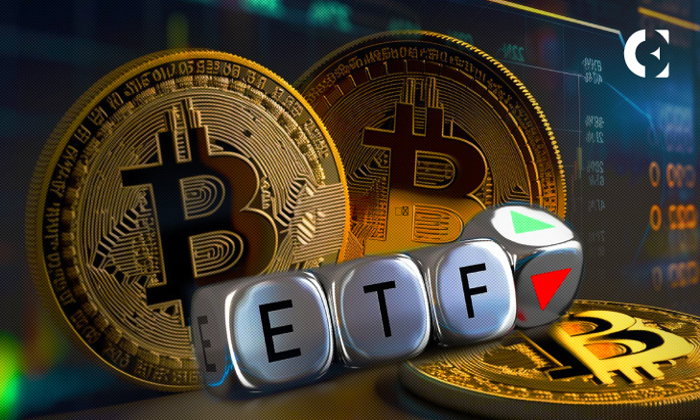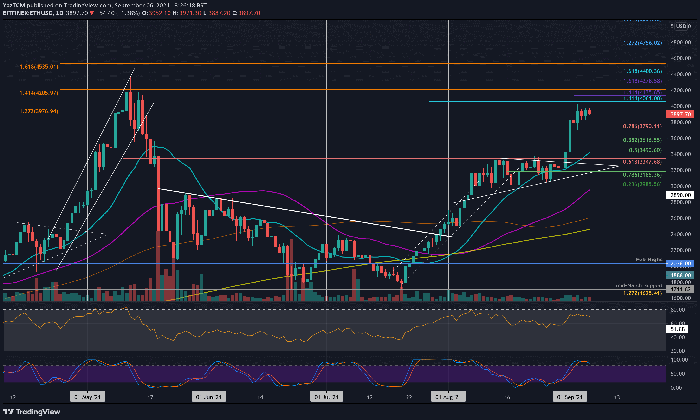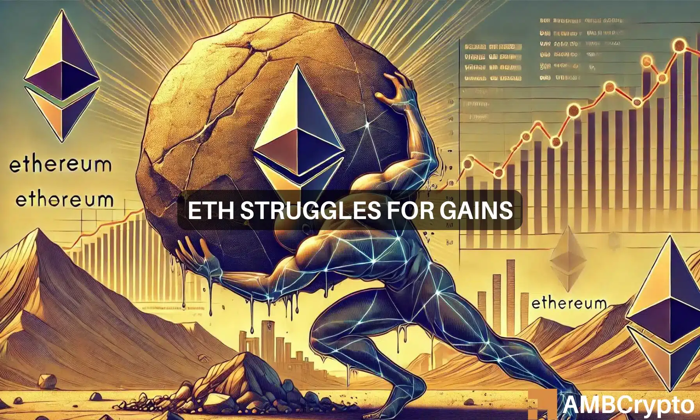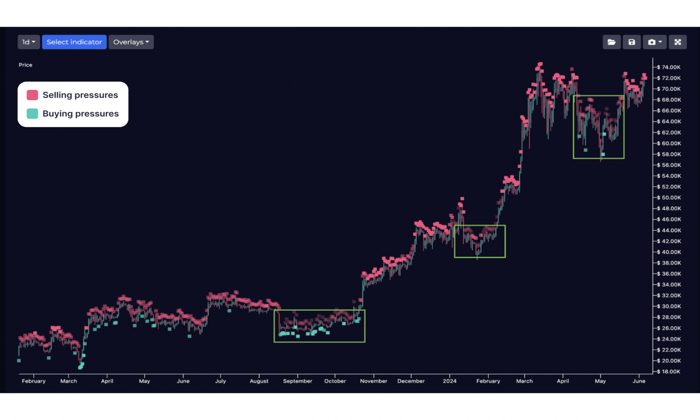Bitcoin ETFs have gained significant traction recently, illustrating a transformative shift in the cryptocurrency landscape as institutional investors embrace them for greater price stability. With the current Bitcoin (BTC) price hovering around $84,400, this resilience is largely fueled by robust inflows into spot Bitcoin ETFs, most notably BlackRock’s iShares Bitcoin Trust (IBIT). As retail speculation diminishes, corporations and large investors like Strategy are now driving demand, which has crucial implications for Bitcoin market trends. Recent data indicates that institutional inflows are the strongest they have been, proving that corporate buyers act as ‘stronger hands’ in the crypto arena. In this evolving market, Bitcoin ETFs not only enhance investor confidence but also play a vital role in establishing a more stable future for this digital asset.
In recent months, exchange-traded funds (ETFs) focused on Bitcoin have surged in popularity, revolutionizing how large-scale investors approach this digital currency. These innovative financial products allow institutions to gain exposure to Bitcoin without directly purchasing the asset, fostering a trend toward increased market stability through institutional buying. As public companies and major investment firms pivot away from speculative trading, they are now viewed as the foundational pillars in reinforcing Bitcoin’s longevity and resilience. This shift becomes crucial in understanding Bitcoin price dynamics, especially in light of growing trends surrounding BTC acquisitions among significant investors. As the crypto landscape continues to evolve, the role of Bitcoin ETFs becomes increasingly paramount for navigating the complex interactions of market forces.
The Rise of Bitcoin ETFs and Institutional Investment
Bitcoin ETFs have become a focal point for institutional investors looking to gain exposure to the cryptocurrency market without the challenges of direct ownership. The increasing popularity of these financial instruments has paved the way for a more stable Bitcoin price, as institutional inflows replace the previous volatility associated with retail trading. Institutions like Strategy have shifted the landscape, emphasizing the role of corporate giants in driving demand. As a result, ETFs such as BlackRock’s iShares Bitcoin Trust have seen unprecedented inflows, reflecting strong confidence from institutional players.
Moreover, the steady accumulation of Bitcoin through ETFs indicates a long-term bullish sentiment among institutional investors. Data from Bloomberg shows that despite broader economic uncertainties, inflows into Bitcoin ETFs have surged, signifying that institutional interest is robust. This stability is crucial, as it helps to mitigate the price fluctuations often driven by retail speculation. By creating a more resilient market structure, Bitcoin ETFs could very well set the stage for sustained price stability while attracting further institutional capital.
Understanding Bitcoin Price Stability and Its Impact
Over the past few months, Bitcoin has exhibited notable price stability, resisting extreme fluctuations despite broader market volatility. As more institutional investors enter the fray, the underlying dynamics of the Bitcoin market are changing dramatically. This shift is characterized by a significant move away from retail speculation towards stable ownership patterns driven by institutional investments. The presence of corporate buyers has effectively absorbed excess supply, allowing Bitcoin’s price to maintain stability within the mid-$80,000 range, even during challenging times.
This price stability is not merely an incidental outcome; it reflects a strategic repositioning within Bitcoin’s ownership landscape. By having stronger hands—those of institutional investors—holding the majority of BTC, the market is less susceptible to the whims of speculative trading. Reports indicate that institutional inflows have bolstered confidence in Bitcoin’s ongoing reliability as a store of value, further reinforcing the potential for sustainable price growth in the long term.
Spot Bitcoin ETFs: The Game-Changer for BTC Markets?
Spot Bitcoin ETFs have emerged as a critical component in the evolving landscape of digital asset investment. Unlike futures ETFs, spot Bitcoin ETFs directly invest in actual Bitcoin, allowing investors to gain exposure while holding the underlying asset. This development has proven advantageous for institutional investors looking to authenticate their positions in Bitcoin. As the market matures, spot Bitcoin ETFs have gained traction, ensuring that institutional demand continues to drive the Bitcoin market forward. The solid performance of these products, especially during periods of increased price volatility, illustrates their resilience and appeals.
Moreover, the strong inflows into spot Bitcoin ETFs indicate that retail participation is increasingly overshadowed by institutional interest. Reports cite that BlackRock’s iShares Bitcoin Trust is not only witnessing record inflows year-to-date but also demonstrating a robustness that suggests institutional players are in it for the long haul. This paradigm shift in who holds Bitcoin—favoring institutional investors—supports the case for increased Bitcoin price stabilization, reflecting the maturity of the cryptocurrency market.
The Role of Institutional Investors in Bitcoin Market Trends
Institutional investors have increasingly asserted their influence over Bitcoin market trends, fundamentally altering the supply-demand dynamic in the cryptocurrency space. The significant capital flowing into Bitcoin from entities like Strategy and BlackRock highlights the growing acceptance of Bitcoin as a legitimate asset class. This trend is not only stabilizing prices but also attracting a broader array of institutional participants, thereby creating a more resilient market structure. The influx of institutional investment serves to reinforce Bitcoin’s status among traditional financial assets.
Additionally, recent data from CryptoQuant reveals that institutional buying has accelerated dramatically. Holding patterns indicate that entities accumulating between 1,000 to 10,000 BTC are particularly active, suggesting a strategic long-term outlook. Institutional investors are now shaping Bitcoin market trends, demonstrating strength that outpaces retail investor trends. This shift directly enhances Bitcoin’s appeal as a secure vehicle for wealth preservation and growth, laying the groundwork for its acceptance as a mainstream investment asset.
How Corporate Buying Impacts Bitcoin’s Future Stability
The ongoing trend of corporate buying in Bitcoin is reshaping how the cryptocurrency is perceived and accumulated in the market. As companies like Strategy amass vast holdings of Bitcoin—over 531,000 BTC—it highlights a shift towards institutional acceptance of digital currencies. This accumulation is pivotal not just for individual companies’ portfolios but for the overall stability and sustainability of Bitcoin’s market. A strong corporate presence provides a buffer against market fluctuations historically driven by retail sentiment, leading to a more stable price environment.
Furthermore, as corporate entities continue to buy and hold significant quantities of Bitcoin, the supply-demand equation tilts favorably towards price support. The sheer volume of BTC being absorbed by corporate investors signifies a robust demand foundation, indicating that future price corrections may be less severe. This trend towards corporate ownership signals a maturation of the market landscape, positioning Bitcoin as a serious contender in the global financial ecosystem.
BTC Institutional Inflows: A Stronger Market Perspective
BTC has witnessed a remarkable uptick in institutional inflows, showcasing a robust transition from retail-driven trading to a more structured investment approach. The trend of institutional investors entering the Bitcoin market is evident through various reports illustrating record levels of BTC acquisition. In 2025, entities such as Strategy have emerged as significant players, purchasing staggering amounts of Bitcoin and indicating a shift in sentiment from speculative trading to long-term investment strategies. This evolution in investment behavior has had a stabilizing effect on Bitcoin prices, as institutional buying helps absorb supply volatility.
These institutional inflows are not just significant for the current state of Bitcoin; they signal a transformative shift in how the market is perceived by traditional finance. Investors now see Bitcoin as a legitimate asset with the potential for price stability, attracting capital inflows from institutional giants. As this trend continues, Bitcoin is likely to experience increased institutional adoption, further solidifying its role as a reliable store of value amidst evolving market dynamics.
Evaluating Market Trends: Bitcoin’s Performance Amidst Institutional Growth
Bitcoin’s performance amidst growing institutional interest presents a somewhat paradoxical scenario. On one hand, while individual prices have seen modest fluctuations, the overall trend indicates a steady accumulation by institutional investors. The ability to maintain a price range around $84,400 suggests that existing institutional capital is effectively dampening volatility, resulting in less dramatic price swings than seen in the past. This long-term outlook could potentially position Bitcoin favorably against other asset classes, strengthening its stature in the investment community.
Furthermore, the ongoing trend of institutional investors and large corporations accumulating BTC offers optimism for long-term stability and growth. The resilience displayed during recent market corrections suggests that institutional players are not only in the market for short-term gains but are fundamentally invested in the future of Bitcoin. As these dynamics continue to evolve, Bitcoin could very well emerge as a key component of diversified investment portfolios, mitigating risks while promising potential rewards for investors.
The Future of Bitcoin ETFs and Institutional Involvement
The outlook for Bitcoin ETFs remains optimistic as institutional involvement continues to grow. With the substantial inflows into products like BlackRock’s iShares Bitcoin Trust, it’s evident that institutional investors see significant value in Bitcoin as part of their overall investment strategy. As more companies embrace Bitcoin ETFs, it creates an environment that not only stabilizes prices but also enhances the legitimacy of cryptocurrencies in financial markets. This institutional interest is vital for creating a solid foundation that could lead to broader acceptance of Bitcoin as an investment vehicle.
Moreover, as the landscape for Bitcoin and cryptocurrencies evolves, regulatory clarity surrounding ETF products is expected to improve further. This shift could lead to the introduction of additional Bitcoin ETFs, thereby broadening access for institutional and retail investors alike. The potential for new offerings may amplify Bitcoin’s profile in global markets, promoting increased participation and investment. With evolving market dynamics and the persistent demand for Bitcoin as an asset class, the future for Bitcoin ETFs looks promising, aligning with the trajectory of increasing institutional investment.
Conclusion: The Critical Role of Institutional Investment in Bitcoin’s Stability
The enduring impact of institutional investment on Bitcoin’s market dynamics cannot be understated. As the ownership landscape shifts, characterized by the transition from retail traders to corporate entities, Bitcoin is entering a new era of price stability and market maturity. The substantial inflows into Bitcoin ETFs and the ongoing accumulation of BTC by institutions like Strategy serve as cornerstones of this transformation. These advancements not only underscore the confidence investors have in Bitcoin but also signify its emergence as a serious player in the financial ecosystem.
Ultimately, the critical role of institutional investors will determine Bitcoin’s trajectory going forward. Their influence is likely to foster a more stable price environment, less susceptible to the volatility of earlier speculative trading patterns. As the market matures and institutional demand continues to grow, Bitcoin’s position as a reliable investment is set to be solidified, paving the way for a promising future in the digital asset space.
Frequently Asked Questions
What are Bitcoin ETFs and how do they impact Bitcoin price stability?
Bitcoin ETFs (Exchange-Traded Funds) are investment funds that track the price of Bitcoin, allowing investors to gain exposure to Bitcoin without directly purchasing the cryptocurrency. They play a significant role in enhancing Bitcoin price stability by attracting institutional investors, who typically have larger financial resources and longer investment horizons than retail traders. This influx of institutional capital, as seen with funds like BlackRock’s iShares Bitcoin Trust, helps absorb market volatility and maintain a more stable price for Bitcoin.
How do institutional investors influence Bitcoin ETFs and market trends?
Institutional investors significantly influence Bitcoin ETFs and market trends by providing substantial capital inflows, which enhance liquidity and price stability within the Bitcoin market. Their participation, as evidenced by large purchases through spot Bitcoin ETFs, indicates a shift away from retail speculation to a more stable investment base. This trend is visible in recent statistics showing robust outflows into Bitcoin ETFs, leading to more resilient Bitcoin price behaviors.
What is the role of spot Bitcoin ETFs in institutional Bitcoin investments?
Spot Bitcoin ETFs, such as BlackRock’s iShares Bitcoin Trust, play a pivotal role in institutional Bitcoin investments by allowing large investors to directly invest in Bitcoin within a regulated framework. These funds facilitate easier access to Bitcoin for institutions, resulting in enhanced BTC institutional inflows. As institutions prefer to hold ‘stronger hands’ in their investments, the continued growth of spot Bitcoin ETFs reflects a maturing market that supports Bitcoin price stability.
Can Bitcoin ETFs contribute to maintaining long-term Bitcoin price stability?
Yes, Bitcoin ETFs can contribute to maintaining long-term Bitcoin price stability by attracting institutional investors who tend to hold their assets longer than retail investors. The presence of such investors helps reduce price volatility across the Bitcoin market, as they systematically accumulate Bitcoin through ETFs, thereby stabilizing demand. This dynamic reinforces the ongoing trend of BTC institutional inflows, which further supports the notion of a more stable Bitcoin price structure.
What trends are emerging in Bitcoin ETF inflows amid macroeconomic pressures?
Recent trends indicate that Bitcoin ETF inflows remain strong, even amidst macroeconomic pressures and price fluctuations. For instance, BlackRock’s iShares Bitcoin Trust reported an impressive $2.4 billion in year-to-date inflows, ranking it in the top 1% of all ETFs. The resilience of these inflows demonstrates institutional confidence in Bitcoin as a stable investment vehicle, countering the downturns that might affect retail-driven trading.
What recent data supports the growth of institutional interest in Bitcoin ETFs?
Recent on-chain data and reports indicate significant growth in institutional interest in Bitcoin ETFs. For example, Q1 2025 saw public companies acquire 95,431 BTC, a record number that reflects increasing corporate investments in BTC. Moreover, despite modest outflows from some ETFs like Fidelity’s FBTC and Grayscale’s GBTC, other ETFs like IBIT have shown significant inflows, reinforcing the narrative that institutions are actively supporting Bitcoin and contributing to its price stability.
How do corporate purchases of Bitcoin affect the market and ETFs?
Corporate purchases of Bitcoin have a profound effect on the market and Bitcoin ETFs. These large acquisitions signal growing institutional confidence in Bitcoin, leading to increased demand within Bitcoin ETFs as investors seek exposure to the cryptocurrency. The aggressive accumulation by institutions helps reduce supply in the market, contributing to price stability and attracting further investments. Consequently, this surge in institutional buying enhances the overall robustness of Bitcoin price trends.
What is the future outlook for Bitcoin ETFs in the context of institutional investment?
The future outlook for Bitcoin ETFs appears positive given the sustained interest from institutional investors. As institutional inflows continue to rise, Bitcoin ETFs are expected to play an increasingly pivotal role in shaping Bitcoin market dynamics. Their ability to stabilize prices amid fluctuations will likely lead to further adoption by both retail and institutional investors, fostering a healthy and sustainable growth trajectory for the Bitcoin market.
| Key Point | Details |
|---|---|
| Institutional Inflows | Institutional investors, particularly from firms like Strategy, are replacing retail speculation, enhancing price stability. |
| Current Bitcoin Price | Bitcoin is trading around $84,400, remaining in the mid-$80,000 range with minor fluctuations. |
| ETF Performance | BlackRock’s iShares Bitcoin Trust (IBIT) has seen $2.4 billion in inflows in 2025, positioning it among the top 1% of ETFs. |
| Comparative ETF Dynamics | While some ETFs like Fidelity’s FBTC and Grayscale’s GBTC experienced outflows, IBIT continues to show positive inflows. |
| Corporate Accumulation | Public companies recorded substantial Bitcoin acquisitions in Q1 2025, highlighting the trend of corporate buying beyond just ETFs. |
| Overall Market Trends | Bitcoin’s performance over short periods has been stable, supporting the notion of a more stable ownership base with less volatility. |
Summary
Bitcoin ETFs are significantly influencing the cryptocurrency market by promoting price stability through institutional investments. With major players like Strategy absorbing Bitcoin supply, the market is experiencing reduced volatility compared to previous periods dominated by retail traders. The strong inflows into ETFs, particularly BlackRock’s iShares Bitcoin Trust, demonstrate the confidence institutions have in Bitcoin, effectively positioning it as a vital asset class for investment.
Bitcoin ETFs have emerged as a pivotal instrument in the world of cryptocurrency, particularly as institutional investors pivot from volatile retail markets toward more stable investment strategies. The recent stability in Bitcoin prices can be attributed to significant BTC institutional inflows, where giants like Strategy and other institutional players are now dominating the market landscape. As spot Bitcoin ETFs gain traction, analysts highlight their role in fostering price stability, transforming the dynamics of Bitcoin market trends. Notably, the strong performance of BlackRock’s iShares Bitcoin Trust amid macroeconomic uncertainties indicates that these financial products are not just passing fads but essential vehicles for serious investors. With the growing interest from institutional investors, Bitcoin ETFs are reshaping perceptions about cryptocurrency investments and paving the way for more profound market resilience.
Digital currency trust funds, such as Bitcoin ETFs, have gained significant traction among large-scale investors, signaling a shift towards institutional adoption of cryptocurrencies. These exchange-traded funds (ETFs) facilitate easier access to Bitcoin for sophisticated institutional players, contrasting sharply with the speculative nature of retail trading in the crypto space. The ongoing trend of substantial BTC allocations by corporate entities illustrates a broader acceptance and strategic integration of Bitcoin into the financial portfolios of major players. Reports suggest that these entities, including prominent investment firms, are not just participating in short-term gains but are committed to long-term asset accumulation. As corporate giants embrace this digital asset, the concept of cryptocurrency investment is being redefined, providing crucial insights into Bitcoin’s potential market stability and resilience.















